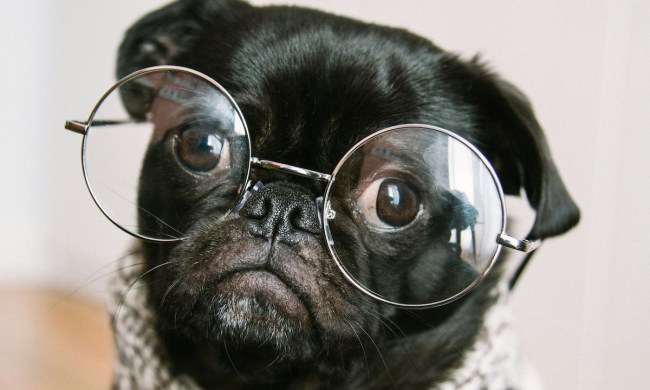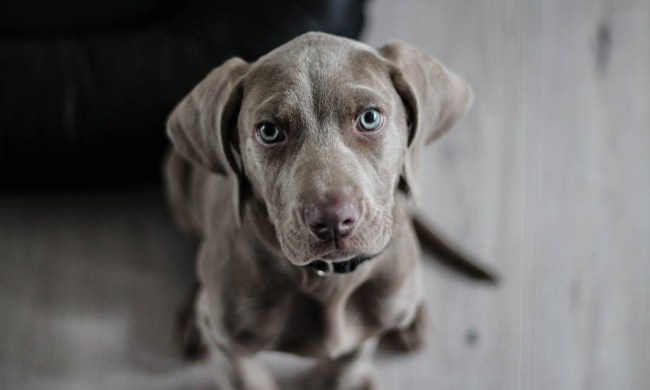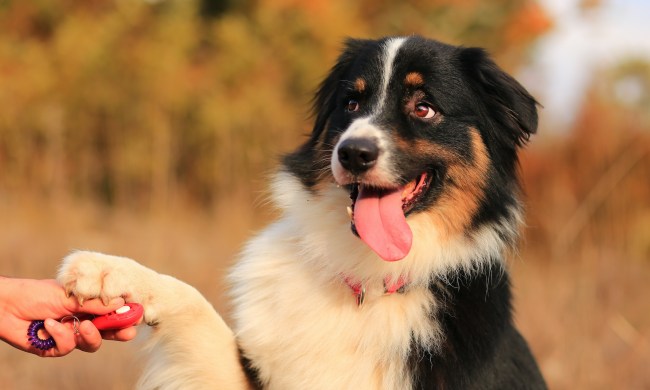A squirrel outside the window. A pair of slippers. Their own tail. Dogs can get distracted by any number of things inside and outside your home, and their excited reactions to these stimuli can be super adorable.
So, what happens when you mix a dog’s fascination of its own tail with its habit of chasing shadows? The dog behavior in this video, which was posted to the r/WhatsWrongWithYourDog subreddit.
Redditor Jeremybearemy noted, “The more he enjoys the game, the harder it gets; it’s self-regulating.”
Jaymez82 added, “Dumb dogs are the best dogs. Smart dogs are trouble.”
But Redditor 1810nard was quick to point out that this dog wasn’t actually dumb. “One of my collies…used to stalk his shadow, so we asked the vet about it. Apparently, it’s [intelligent]. He’s making up his own game [because] he’s bored.”
Others noted that chasing shadows, while seemingly cute at first, can quickly become dangerous dog behavior. MaryJanesMan420 said, “It looks like fun and games, but unfortunately, the mental state of the dog during this engagement isn’t the healthiest for them.”
Redditor Top-Requirement4460 agreed, adding, “They start to become obsessed with it, and the behavior becomes compulsive and neurotic, even after removing the initial stimuli.”
“Had a friend’s dog get bloody paws from digging at its shadow while on… concrete,” Redditor ASDFzxcyTaken reported.
Of course, you can’t always believe everything you read on Reddit, so how much truth is there to this?
According to Positive Pets Dog Training, it is possible for these cute, playful dog behaviors to turn into obsessions. A dog who chases its own shadow incessantly is indicative of a dog who is anxious or frustrated. This can be common in both herding and working dogs, which need physical stimulation more than many other groups.
Dog behaviorist Cesar Millan notes on his site:
“When dogs have fixations and obsessions…it usually means one of two things: that they have unreleased energy they need to get rid of or they have an insecurity of some sort.”
If your dog has suddenly become fixated on its shadow, evaluate its living arrangements:
- Does your dog have enough room to play and run around, or are they often kept in a small, confined space?
- Does your dog get enough exercise?
- Does your dog get enough mental stimulation?
Changes to their living space and daily routine can lessen their frustration and get at the root cause of this activity. (And who doesn’t love taking their dog for more walks?) It’s also important not to encourage this behavior — when on a walk with your dog, keep their attention, so they’re looking around and not just down at their own shadow.
There are other measures you can take — such as using a cone collar — but you should always consult a professional first before trying such measures.
A puppy occasionally becoming fascinated with and chasing shadows as they’re learning to explore the world isn’t anything to be super worried about — but if these behaviors are allowed to become engrained, it can lead to an obsession down the road (especially if your dog isn’t getting enough mental or physical stimulation).


